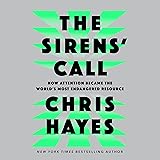Start a New Year of Learning on the Right Foot
Feeling inspired to write your first TDS post? We’re always open to contributions from new authors.
Happy new year! Welcome back to the Variable!
The ink has barely dried on our 2024 highlights roundup (it’s never too late to browse it, of course), and here we are, ready to dive headfirst into a fresh year of learning, growth, and exploration.
We have a cherished tradition of devoting the first edition of the year to our most inspiring—and accessible—resources for early-stage data science and machine learning professionals (we really do!). We continue it this year with a selection of top-notch recent articles geared at beginner-level learners and job seekers. For the rest of our readers, we’re thrilled to kick things off with a trio of excellent posts from industry veterans who reflect on the current state of data science and AI, and share their opinionated, bold predictions for what the year ahead might look like. Let’s get started!
2025: Ready, Set, Go!
Top 10 Data & AI Trends for 2025
As the co-founder and CEO of Monte Carlo, few people are as well-positioned as Barr Moses to observe industry shifts and emerging trends—so her annual forecast should definitely be on your to-read list.2024 in Review: What I Got Right, Where I Was Wrong, and Bolder Predictions for 2025
After a year dominated by RAG, AI agents, and knowledge graphs, what tools and workflows should we keep track of in the coming year? Leonie Monigatti shares a thorough recap of 2024—and a sneak peek at her well-tuned crystal ball for the year to come.Ten Predictions for Data Science and AI in 2025
From Jason Tamara Widjaja, here’s another set of insightful reflections: “My predictions for 2025 attempt to provide a view of the tensions of AI, taking an unpopular but balanced view as someone whose work depends not on selling AI, but on implementing AI well — and living through the consequences of our decisions.”Photo by Annie Spratt on Unsplash
Data science and machine learning, step by step by step
The Essential Guide to R and Python Libraries for Data Visualization
With or without AI, charts and plots aren’t going anywhere anytime soon. Sarah Lea maps out the key libraries in which current and aspiring data scientists should gain fluency.Roadmap to Becoming a Data Scientist, Part 2: Software Engineering
Programming isn’t going anywhere in 2025, either. Vyacheslav Efimov’s guide outlines the coding essentials that will lead you to data science success.Missing Data in Time-Series: Machine Learning Techniques
One constant trait of real-world data: it’s messy! Learn how to navigate the chaos by following along Sara Nóbrega’s primer on handling missing data.Causality — Mental Hygiene for Data Science
Taking a few steps back from the more nitty-gritty aspects of data science work, Eyal Kazin’s recent deep dive constitutes a “gentle intro” to the intricate art of detecting, interpreting, and applying causality.Master Machine Learning: 4 Classification Models Made Simple
For anyone who enjoys structure and clarity above all else, Leo Anello’s (extremely) thorough, 15-step tutorial on classification models would be a perfect starting point from which to expand your ML know-how.2024 Survival Guide for Machine Learning Engineer Interviews
Whether you’re already applying for your first MLE job or contemplating it as one of your goals for the year, don’t miss Mengliu Zhao’s “survival guide,” aimed specifically at junior-level practitioners.Machine Learning Basics I Look for in Data Scientist Interviews
Tackling the occasionally opaque hiring process from the other end of the table, Farzad Nobar created a helpful resource to help job applicants zoom in on the topics that really matter to employers.100 Years of (eXplainable) AI
Beyond the whats and hows of day-to-day work, there are also the whys: why did this model produce these outputs? Sofya Lipnitskaya’s explainer unpacks the history of AI explainability in the context of the recent rise of LLMs.How to Build a General-Purpose LLM Agent
To end on a more hands-on note—and to satisfy the curiosity of all of you who’ve heard the buzz around AI agents—we highly recommend Maya Murad’s step-by-step guide, which can form “the groundwork for designing your own custom agentic architecture” down the line.
Thank you for supporting the work of our authors! As we mentioned above, we love publishing articles from new authors; if contributing to TDS in 2025 is one of your new year’s resolutions—or even if you’ve just recently written an interesting project walkthrough, tutorial, or theoretical reflection on any of our core topics—don’t hesitate to share it with us.
Until the next Variable,
TDS Team
Start a New Year of Learning on the Right Foot was originally published in Towards Data Science on Medium, where people are continuing the conversation by highlighting and responding to this story.










